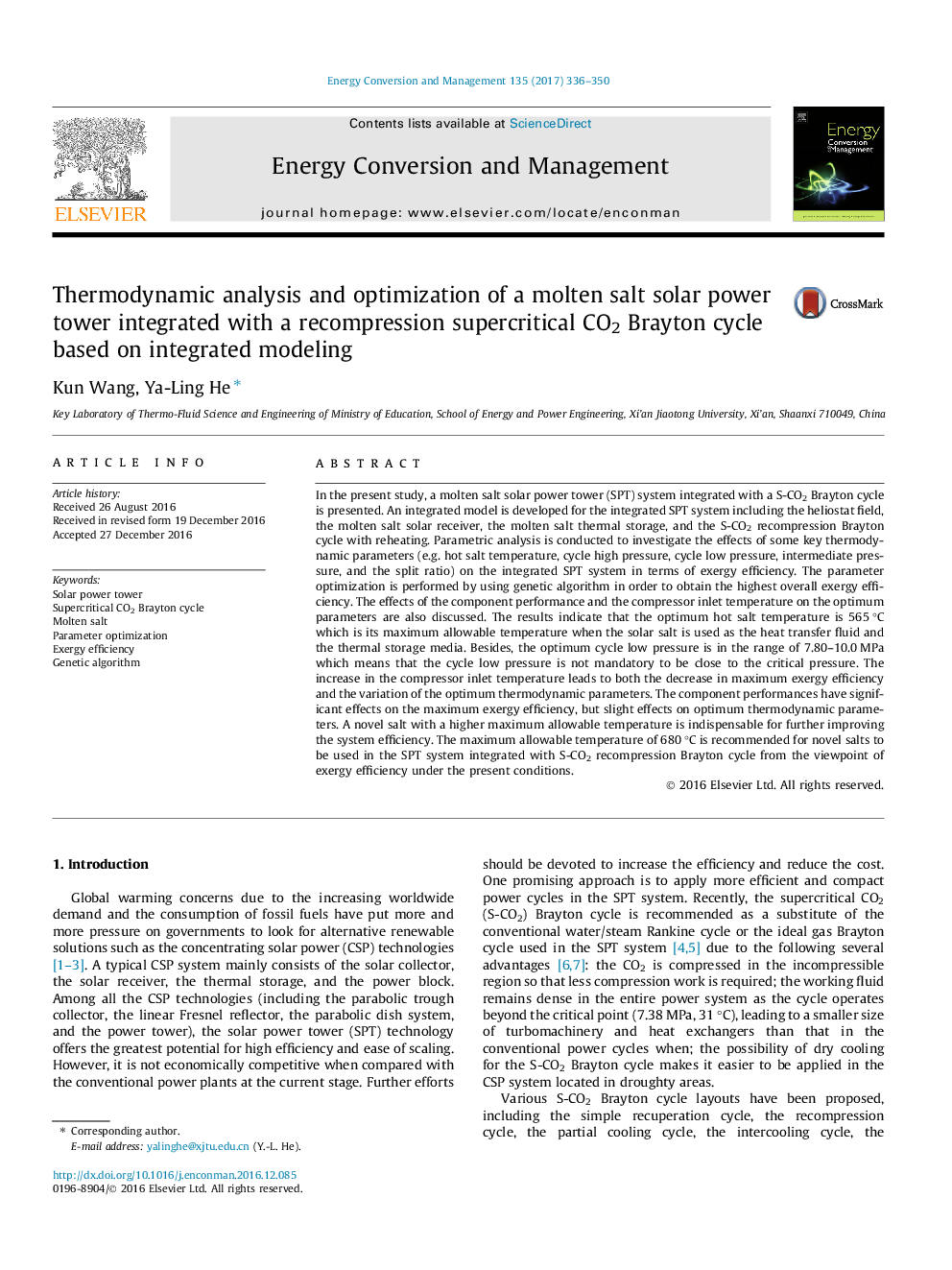| Article ID | Journal | Published Year | Pages | File Type |
|---|---|---|---|---|
| 5013224 | Energy Conversion and Management | 2017 | 15 Pages |
Abstract
In the present study, a molten salt solar power tower (SPT) system integrated with a S-CO2 Brayton cycle is presented. An integrated model is developed for the integrated SPT system including the heliostat field, the molten salt solar receiver, the molten salt thermal storage, and the S-CO2 recompression Brayton cycle with reheating. Parametric analysis is conducted to investigate the effects of some key thermodynamic parameters (e.g. hot salt temperature, cycle high pressure, cycle low pressure, intermediate pressure, and the split ratio) on the integrated SPT system in terms of exergy efficiency. The parameter optimization is performed by using genetic algorithm in order to obtain the highest overall exergy efficiency. The effects of the component performance and the compressor inlet temperature on the optimum parameters are also discussed. The results indicate that the optimum hot salt temperature is 565 °C which is its maximum allowable temperature when the solar salt is used as the heat transfer fluid and the thermal storage media. Besides, the optimum cycle low pressure is in the range of 7.80-10.0 MPa which means that the cycle low pressure is not mandatory to be close to the critical pressure. The increase in the compressor inlet temperature leads to both the decrease in maximum exergy efficiency and the variation of the optimum thermodynamic parameters. The component performances have significant effects on the maximum exergy efficiency, but slight effects on optimum thermodynamic parameters. A novel salt with a higher maximum allowable temperature is indispensable for further improving the system efficiency. The maximum allowable temperature of 680 °C is recommended for novel salts to be used in the SPT system integrated with S-CO2 recompression Brayton cycle from the viewpoint of exergy efficiency under the present conditions.
Keywords
Related Topics
Physical Sciences and Engineering
Energy
Energy (General)
Authors
Kun Wang, Ya-Ling He,
